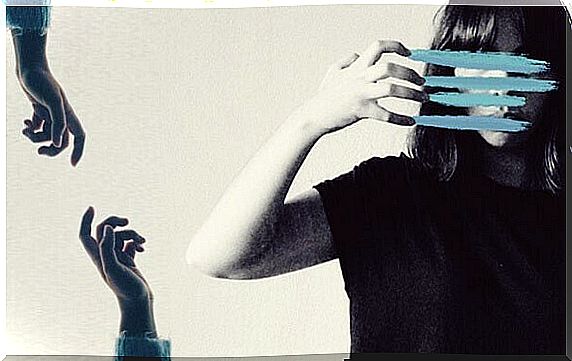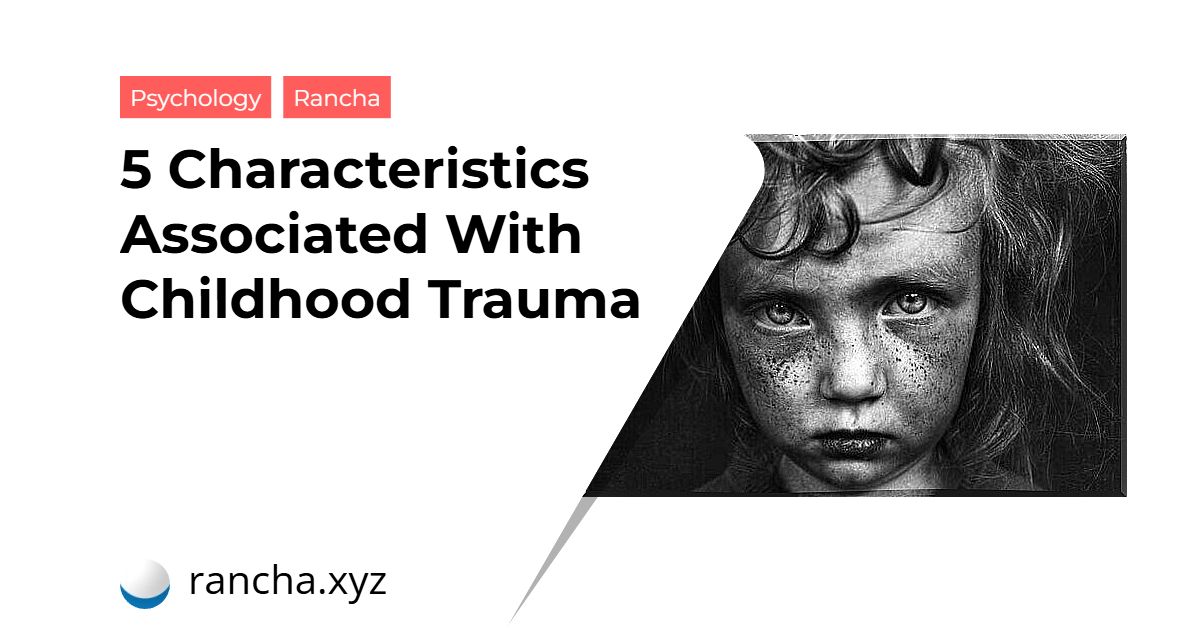Childhood is a decisive stage in life. The physical and psychological impressions that remain at this stage of life leave permanent marks on the brain. Therefore, childhood traumas completely characterize the personality and its influence extends over time.
This is not to say that they cannot be overcome or, in the worst case, that they cannot reasonably be overcome. Having lived a difficult childhood does not mean the impossibility of having a full life. However, this usually requires therapeutic processes or deep professional elaboration.
There are some characteristics that denote the presence of unresolved childhood traumas. If you had a difficult childhood, it is worth reassessing whether any of these characteristics are present in your way of being. They are excellent indicators to show that it’s time to do something for yourself.

1. Inhibition, a feature associated with childhood trauma
Inhibition has to do with the difficulty of being present in the world. Even in life itself. This is the case with people who avoid saying what they think or doing what they want. They are afraid to do something or just can’t think of anything.
Childhood trauma can make a person feel inhibited to assert themselves in various situations. What remains, on the other hand, is hermeticism. Isolation. Great difficulty in relating to others and feeling of fear in relation to people.
There are people who are introverted and, therefore, not very adept at social situations. However, they have no problem saying aloud what they think or feel. And they act autonomously. On the other hand, when there are childhood traumas that have not been overcome, the person wants to go unnoticed, not attract attention.
2. Irascibility
There is often an accumulation of anger in people who have not gotten over their childhood traumas. They are not necessarily violent people. They tend to be, in fact, little tolerant and prone to react aggressively. It’s like they’re always on the verge of exploding, even if they don’t.
Irascibility is also perceived in the way of manipulating objects or in the tone of voice. There is tension in gestures and in the way of speaking. There is anger in the way they act, even if these people are not overtly aggressive.
3. Rejection of compliments
People who haven’t gotten over their childhood traumas also often have trouble valuing themselves. Or, they feel very inferior or superior to others. In case they feel superior, that happens only in appearance. A mechanism to compensate for their poor opinion of themselves.
Therefore, it is common for them to reject the compliments of others. They think they are never good enough. That’s why they get annoyed when someone says they stand out in some area. They feel it is a farce or a joke. They cannot understand how someone admires them when they hate themselves.

4. Constantly apologize
A person with childhood trauma feels that everything they say or do can upset others. So she apologizes often. Ask forgiveness for things you shouldn’t ask for. Apologize when you go to speak, as if you have no right to do so. And also when they are going to enter or leave somewhere, etc.
In this type of action it is possible to see the marks of a restrictive creation, perhaps humiliating and with few expressions of affection. These people feel as if they have to ask forgiveness for any action that evidences their presence in the world. This is exactly one of the great effects of unresolved childhood trauma.

5. Running away from conflict or living in it
Traumatic childhoods often develop in very conflicted families. A context in which disagreements and aggression were the norm. Any word or any action could trigger a series of problems. Therefore, the person may grow up with fear or obsession with conflict.
People who fear conflict will flee from it under any circumstances. Even they are able to go over the own convictions in order to avoid a contradiction. People who cling to conflict make everything a problem. They remain stuck in repeating the behaviors they learned as children.
Childhood traumas do not resolve themselves, or at least they rarely do. It is necessary to work with them so that they do not end up invading the personality and turning life into hell. There’s always something from everything we’ve lived through over the years. But when we are adults, we are in a position to mold and work through childhood traumas in ways that do not harm us.
 rancha.xyz Be free to choose their own route to self-knowledge, health and balance of body and soul.
rancha.xyz Be free to choose their own route to self-knowledge, health and balance of body and soul.




